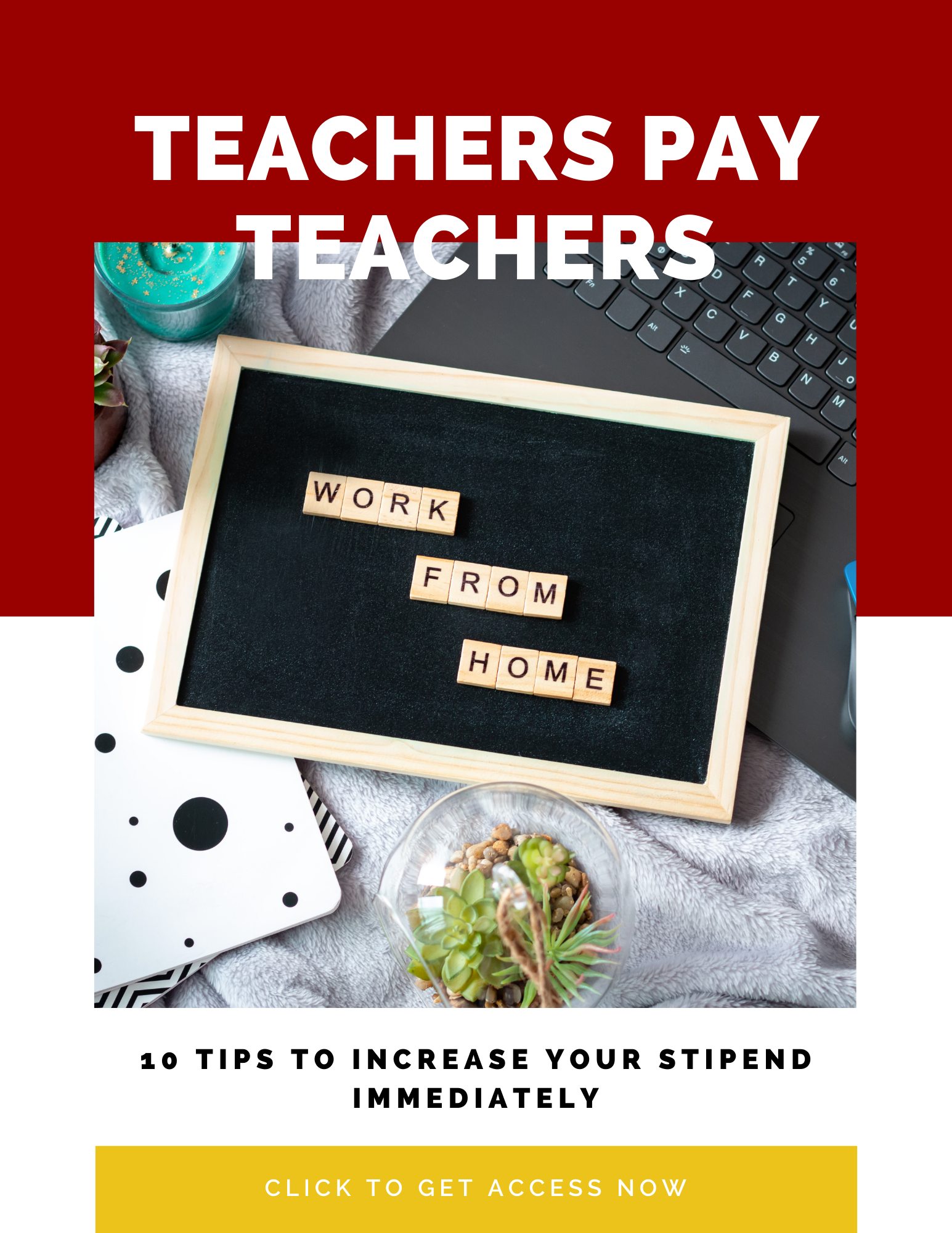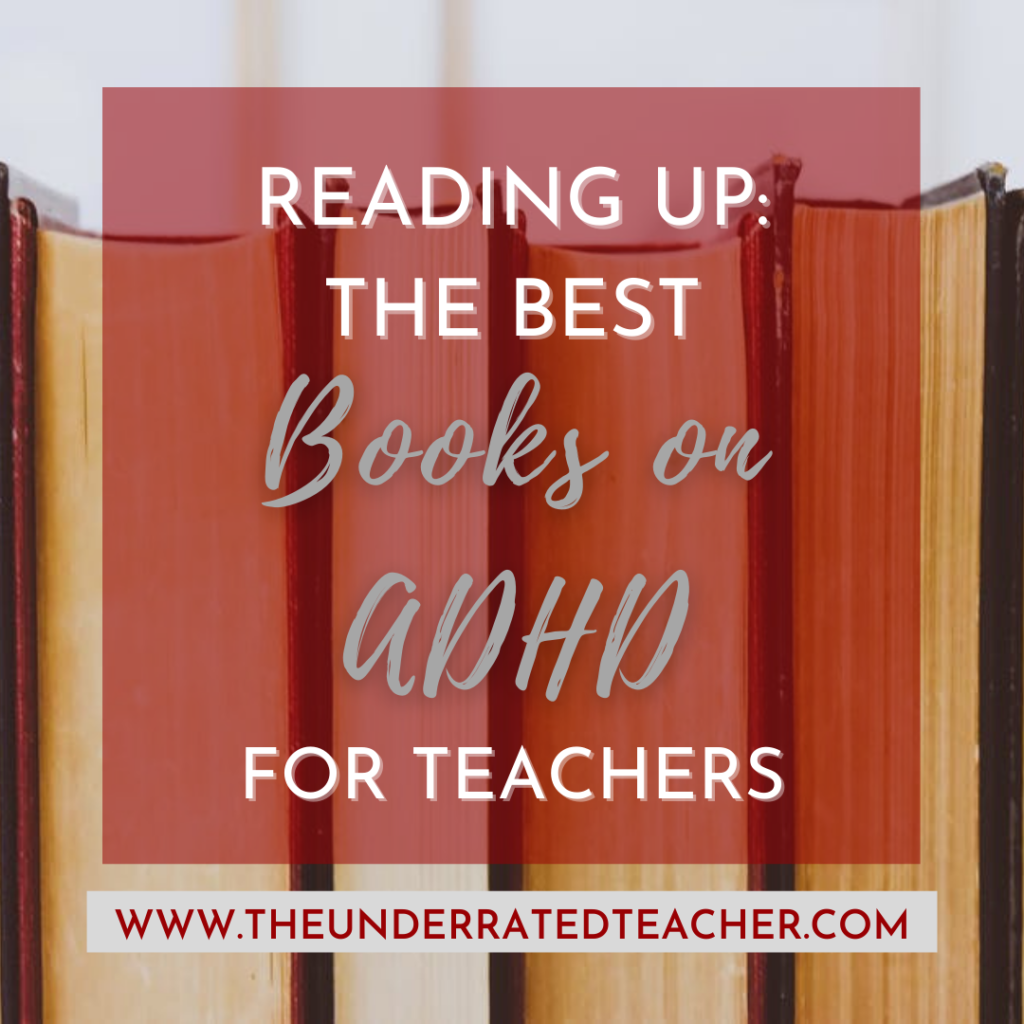Are you looking to educate yourself more on ADHD? If so, read on to learn about the best books on ADHD for teachers.
A teacher’s job goes beyond teaching kids to read, write, and count. They also need to understand every child that goes inside their classroom. They need to build a connection that goes beyond the workbooks.
One of the toughest challenges for any teacher is dealing with students who have attention deficit hyperactivity disorder or ADHD. In the United States alone, over 6.4 million children between the ages of 4 to 17 have ADHD.
Unfortunately, some teachers still lack knowledge in dealing with kids with ADHD.
But with the help of books on ADHD, understanding these children becomes easier. Continue reading below especially if you are a teacher who has students with ADHD.
Books on ADHD You Should Have in Your Shelf
You don’t need to be a doctor to learn how to deal with ADHD patients, especially kids. Thankfully, there are a good number of literature that can help teachers and parents. Let’s take a look at some ADHD books for adults you need to have on your shelf at home.
1. The ADHD Book of Lists: A Practical Guide for Helping Children and Teens with Attention Deficit Disorders (Sandra F. Rief)
This book is an excellent resource for K-12 teachers, school psychologists, and counselors. It features an extensive list of strategies, tools, and answers to different questions on ADHD.
The book contains different methods that aim to minimize problems with ADHD. It presents different forms of interventions that teachers, counselors, and parents can use. The book also aims to optimize the success of children with ADHD.
It covers issues both inside and outside the classroom.
Another great thing about this book is its format. It comes in an 8 ½ x 11 lay-flat format that is easy to read and digest. It also comes with forms, checklists, and tools that teachers can reproduce.
Readers praise this book for its clear presentation of ADHD in children. It starts with the discovery of ADHD in children. It tackles the options for families who have children with ADHD.
2. Answers to Distraction (Edward M. Hallowell)
This book attempts to explain why millions of children and adults are underachievers. It also sheds light on why they often find themselves in piles of problems in school, at home, or at work.
The author tries to highlight attention deficit disorder (ADD) as the culprit. The book provides practical answers to the challenges that come with ADD.
The book somewhat works like a user’s guide to ADD. It uses a question and answer format that makes the topics easy to understand. This book tackles different topics like ADD and aggression and ADD and addiction. It also discusses ADD in women, as well as ADD and work.
It also guides teachers in identifying students with ADD. It gives useful tips on helping students cope and thrive with their condition.
3. All Kinds of Minds: A Young Student’s Book About Learning Abilities and Learning Disorders (Mel Levine)
The book takes on the different learning disorders that affect children. It tackles the struggles of children in terms of their behavior inside the classroom.
It provides helpful guidelines in dealing with different kinds of learning disabilities. The book is a light read that is easy to share between teacher-student and parent-child alike.
4. Attention-Deficit Disorders and Comorbidities in Children, Adolescents, and Adults (Thomas Brown)
This book takes on the complications that half of ADHD patients go through on top of their condition. These are the comorbid disorders that affect behavior, learning, and emotions. These disorders further complicate ADHD.
The author gives readers a clear picture of ADHD. He provides a full-detail explanation of the matter. The book follows through with the interaction of ADHD with other types of disorders.
These other problems include mood disorders, anxiety, and sleep disorders.
It also explains how ADHD affects kids and adults with obsessive-compulsive disorder; oppositionality and aggression; and developmental coordination issues.
It then provides different clinical diagnoses and interventions for ADHD patients. It discusses the methods of treatment for the individual. It expounds on the importance of customizing treatments to help the person as a whole.
Readers hail the book for its heavy annotation. It also features solutions that will benefit not only educators but also clinicians as well.
5. Managing ADHD in School: The Best Evidence-Based Methods for Teachers (Dr. Russell Barkley)
This book features over 100 different recommendations for teachers and clinicians dealing with ADHD children and teens. It offers some of the most effective methods for dealing with hound children and teens with ADHD.
It zooms in on every problem by explaining what they are and why they happen. It follows through by providing some of the most effective interventions. The author discusses the likes of classroom strategies.
He also touches on reward systems for students showing good behavior.
He also explains different discipline methods and effective medications. The book also comes with report cards and assessment guides that you can download.
Readers appreciate the preciseness and relevance of the book. Parents and teachers also note the practical guidelines that come with the book. In addition, readers also hail the author’s clear presentation of the author, making the book easy to understand.
6. How To Reach And Teach Children with ADD / ADHD: Practical Techniques, Strategies, and Interventions (Sandra F. Reif)
Another book by Sandra F. Reif offers a plethora of interviews and real-life case studies for teachers and parents. It provides a wide range of student intervention plans for kids with ADHD and ADD.
You will learn different strategies and teaching practices you can use inside the classroom. The book will help you improve student engagement and productivity. It will assist you in preventing and managing your students’ behavior.
Best of all, it will also help you forge stronger partnerships with the parents of ADHD students.
The book features six parts. Each part presents a topic with effective organization and clarity. Critics hail the book for its easy-to-read style. This, despite the overwhelming materials that come with it.
7. The Child With Special Needs: Encouraging Intellectual and Emotional Growth (A Merloyd Lawrence Book) (Stanley I. Greenspan)
This book focuses on the challenging path of raising a child with special needs. It provides a step-by-step approach to handling challenges that come with different disabilities.
The book aims to help parents and teachers handle children with ADD, cerebral palsy, and Down syndrome. It also guides in caring for kids with language and speech deficiencies. It also helps parents handle children with autism.
The author will teach you how to go beyond the labels. He will point you towards focusing on the strengths and problems of the child. The book will lay down the different milestones that you should help the child achieve.
In addition, the book will also broaden your understanding of the different kinds of stresses that affect the child. Lastly, it will also teach the value of rewards and how they impact the child’s development.
8. Tigers, Too (Marilyn P. Dornbush and Sheryl K. Pruitt)
In their first book “Teaching the Tiger,” the authors focused on dealing with kids who have ADHD, OCD, and Tourette Syndrome. The authors provide additional information in managing kids with processing speed disorder, executive dysfunction, and memory deficits in this follow-up book.
The book serves as a practical guide for educators, parents, and healthcare professionals. It features strategies that help strengthen communication lines with the children.
It comes with a huge amount of statistical information. This is the perfect book if you are someone who loves to deep-dive into details and numbers.
9. Teaching Teens with ADD and ADHD: A Quick Reference Guide for Teachers and Parents (Chris A. Zeigler Dendy)
If you are handling teens with ADD and ADHD, this is the book for you. Author Chris Zeigler Dendy tackles offer 50 different issues involving ADD and success in school. He gives a clear presentation of the fundamentals of ADD.
He also offers some effective interventions teachers can use inside the classroom. He discusses the reasons why teens with ADD fail in school. He also touches on different strategies for managing teens’ behavior.
These books on ADHD work as a quick reference for school administrators and educators. It is easy to read and digest. As for parents, the book can help children who are struggling to finish their homework.
In addition, it also comes with checklists and blank forms. Parents and educators can share these items.
Become a Better Educator, Today!
As an educator, you want your fellow teachers to understand ADHD and all of its nuances. Through these books on ADHD, you will stay on the same page and take the same steps toward success.
As an individual, you want to keep your focus on your personal goals inside and outside of the classroom. We invite you to check our other blog posts that aim to help teachers improve on their craft.
We also encourage you to send us your questions. We are more than happy to share additional knowledge and training. We can help you become the best teacher that you can.



